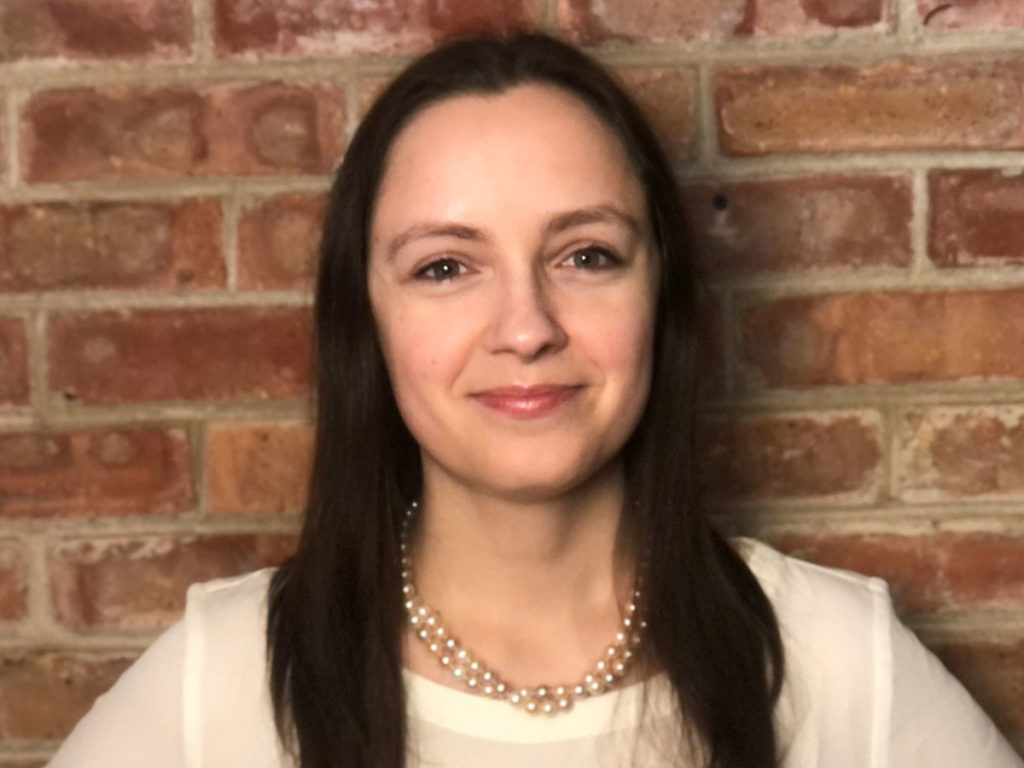What can I say about Rebecca Gill?
Rebecca is one of those entrepreneurs who has paved a way for her and her team in the WordPress community.
Web Savvy Marketing is a respected marketing firm in Michigan where they spin up high functioning websites for their clients.
Her company has an impressive portfolio including Michigan State, James Madison, and UCLA.
Before the Web Savvy Marketing years, Rebecca spent time learning Search Engine Optimization (SEO) for her prior employer and beating large companies for relevant keywords.
In December 2015, I took a series of webinars hosted by iThemes in which Rebecca taught some basics of SEO. I learned a lot from the training.

When it comes to SEO and WordPress, I always refer people to Rebecca.
She has built a do it yourself course and will be partnering with Cory Miller (iThemes) and Carrie Dils to host an SEO Bootcamp later this month.
In the year 2016, Rebecca says she reignited her love for SEO. She explains a little about how that happens in our Q&A.
Without further adieux, here is the Q&A with Rebecca Gill on SEO.
Q&A With Rebecca Gill of Web Savvy Marketing
What is something we might not know about Rebecca Gill (a hobby, interest, passion)?
I don’t really have hobbies outside of work. Sad I know.
Due to that, I’ll give you something about my interests.
I am a lifelong Michigan resident who prefers the quiet of Northern Michigan over the more fast paced suburbs of Southern Michigan. While I may thoroughly enjoy nice hotels, fine dinners, and Uber Black – my heart is in the quiet, low-key atmosphere of rural Michigan.
I have heard about your SEO background during the Webinar in December 2016, but some may not have. What makes Rebecca Gill a qualified SEO consultant?
I’ve been working with real-world SEO for about fifteen years. I’m self-taught and learned SEO out of self-preservation.
I started working with small websites from the ground up and had to compete against major companies with massive marketing budgets. This means I had to work a lot smarter and with a lot more purpose.
What I learned along the way was that anyone could learn SEO and excel at it. If little old me could beat Microsoft, SAP, and Oracle, this meant SEO is an option for everyone.
I did beat all three of those companies in organic search and used this SEO ranking to grow my prior employer’s revenue by 400% in two years. The vast majority of that growth was based on SEO, blogging, and social media. And that was before regular people even knew about blogging.
Once I left that company, I launched Web Savvy Marketing in the middle of a recession and within a year I had my six-figure income back and it was solely due to SEO, blogging, and social media efforts.
I don’t just talk about SEO, I live and breath it and have based over a decade of my life improving my skill-set.
What is the best way to implement Accelerated Mobile Pages for WordPress Entrepreneurs? Plugin?
For AMP I would follow Yoast’s suggestion of the following two plugins:
https://wordpress.org/plugins/amp/
https://wordpress.org/plugins/glue-for-yoast-seo-amp/
Once installed and configured you’ll need to validate your set up via your Google Search Console account.
Yoast has a thorough, easy to understand article at https://yoast.com/wordpress-amp-part-ii/.
Where will WordPress entrepreneurs see the most impact on SEO in 2017?
First let me say WordPress entrepreneurs and developers are going to see shrinking SEO opportunities in 2017, because the landscape keeps changing and at a swift rate. Google is getting more and more savvy, as is the way they are displaying search results.
This means website owners and bloggers need to get more knowledgeable about SEO if they want to drive traffic from it.
In 2017 I believe we will be looking less and less at simple keywords and looking more and more at solving a visitor’s problems.
SEO has also become more sophisticated and search engines are looking at the entire website. Google no longer looks at just keywords and the old default of keyword density.
In today’s world of SEO you have to be aware of keywords, user intent, high quality and long form content, the impact design has on the user experience and metrics like click-through and bounce rates.
It’s a holistic approach to SEO that is 100% focused on creating a positive user experience.
What are the greatest challenges of a website redesign in terms of SEO?
A big issue I consistently see is related to 301 redirects. I constantly have people come to me who have lost their SEO ranking in a redesign and the major reason is the lack of 301 redirects.
The redesign often creates a variance in site architecture, and as such, URLs change. When this happens, you have to have page-specific URLs to protect your existing SEO and rank.
This year I’ve discovered this is rarely the case and website owners are hurt in the process. It shouldn’t happen.
I’ve been reading for a few years now about the importance of content for SEO, but you are saying that technical aspects are becoming more important. Is SEO becoming much more balanced now? Does content still matter?
Content still matters and that is not going to change. What is changing is the way people access this content, the way search engines display it, and the way website owners adapt to these changing conditions.
You really cannot have good content-based SEO without a solid technical SEO plan to back it up.
SEO is a balance of many things and content and technology are at the heart of it.
What things do you still see people doing wrong for SEO?
The lack of 301 redirects above is a big one. I discussed that above, so I won’t dive into again.
Surprisingly enough, people still tend to throw keywords at a website within having a structured process of discovery, keyword research, site mapping, and content generation.
I’ll spend 6-8 weeks just on planning with an SEO client, yet the majority of website owners and developers fail to do this for their own websites or that of their clients.
What will happen to keywords with semantic search and some of the changes? Will there be a need for keyword research in the future?
I think we will always have keyword research, although we will be viewing different data and considering our keyword options in a different manner.
Semantic and voice search is shifting how people query in search engines. Instead of just typing WordPress, people will type (or ask) what is WordPress or utilize an even longer search string. We don’t use a phone book, we use Google to locate anything around us. We don’t ask a friend for referrals, we use Google to show us what those around us are reporting in reviews.
As this occurs and continues to evolve, the job of the SEO consultant or website owner must also shift and become more strategic.
We need to look forward to SEO and see it as unchartered territory with a plentiful amount of opportunities.
Do you think that Google will continue to be the “one ring that rules them all” or do you think that Bing or someone else will change the game in the future?
Search goes beyond traditional search engines. In expands into other web properties like YouTube, Facebook, Amazon, or even the WordPress.org plugin repository. Anywhere there is a lot of traffic and a search box, you need to be aware of SEO and how your activity can influence results.
As for Google vs. Bing and the other search engines, I do not see anyone coming close to truly competing with Google in 2017. Google is still the leader in both activity and in driving search advancements.
You said you fell in love with SEO again in 2016, what does that mean for you in the future? More training courses? More SEO consulting?
I certainly did fall back in love with SEO in 2016. But “back” is the important element in that statement.
I had always loved SEO, but as Web Savvy Marketing grew so did my operational responsibilities. This left less time for me to allocation to SEO education and helping people.
Our project manager Mary has helped this situation and as she took on some of my responsibilities I was able to reintroduce myself with SEO activity.
And let me be clear in the fact that I’ve loved every bit of my SEO activity this year. It has meant creating, educating, and helping people who really need it. That is very satisfying for me and it energizes me.
So yes you’ll be seeing more SEO webinars with iThemes, more SEO courses, and probably another SEO Bootcamp or two. And that will most likely follow with me working on more SEO consulting projects.
Conclusion
“SEO is a Process and Not a Plugin.”
That is a is a title of one Rebecca’s blog posts.
SEO is a mindset.
I urge you take a look at the articles on SEO that Rebecca has written at the Web Savvy Marketing website as well as the courses she offers at diyseocourses.com.
What are some of the SEO resources you use?








2 thoughts on “SEO Q&A with Rebecca Gill of Web Savvy Marketing”
Hey,
Thanks for the great post. It was an awesome FAQs to know about Rebecca. Especially it is great to know that she is using Yoast SEO’s plugin for AMPs.
Thanks for commenting! Rebecca is fantastic
Comments are closed.